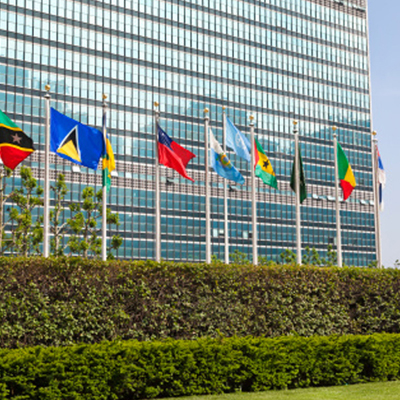In a setback to India’s bid for a permanent seat in an expanded UN Security Council, the US, along with Russia and China, has opposed negotiations to reform the powerful UN body, refusing to contribute to a text that will form the basis for the long-drawn reform process.
UN General Assembly President Sam Kutesa achieved a breakthrough of sorts by circulating a text to UN members that will form the basis for the negotiations on the reform of the Security Council. Kutesa had appointed Jamaica’s Permanent Representative Courtenay Rattray to chair on his behalf the Intergovernmental Negotiations on Security Council Reform.
Kutesa, in a letter dated July 31 to all UN members, said he is also circulating letters containing the positions of groups and Member States that indicated they did not wish their proposals to be included in the body of the negotiating text. These countries include US, Russia and China.
American Ambassador to the UN Samantha Power said in her letter to Kutesa that the US is “open in principle” to a “modest” expansion of both permanent and non-permanent members but the condition that “any consideration of an expansion of permanent members must take into account the ability and willingness of countries to contribute to the maintenance of international peace and security and to the other purposes of the United Nations.”
Power added that “we believe that consideration of new permanent members must be country-specific in nature.” She also reiterated that the US remains opposed to “any alteration or expansion of the veto”.
Sources told PTI that the US opposition to aspects of the reform process can be perceived as a “duplicity” since President Barack Obama has reaffirmed his support for a reformed UN Security Council with India as a permanent member.
Russia, which has also supported India’s candidacy as permanent member, said in its letter to Kutesa that the “prerogatives of the current Permanent Members of the Security Council, including the use of the veto, should remain intact under any variant of the Council reform”.
“The intergovernmental negotiations on the UN Security Council reform should proceed in a calm, transparent and inclusive atmosphere free from artificial deadlines,” it said.
India has maintained that the process to expand the powerful UN body “cannot be seen to be an exercise ad infinitum” and a results-based timeline is crucial to achieve a concrete outcome.
“Those who ask for not imposing artificial timelines may be advised to desist from inflicting artificial delays on this process,” India’s Ambassador to the UN Asoke Kumar Mukerji has said in the past.
Sources said that India feels that the 70th anniversary of the UN, being commemorated this year, is an appropriate milestone to propel the reform process, which should be completed within the next one year.








